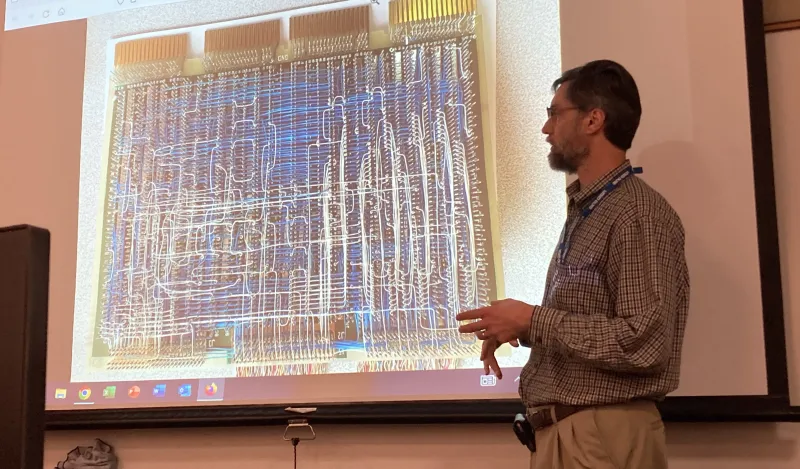
Affordable Path to Tech: NHCC’s Computer Science Associate Degree
As a student at North Hennepin Community College (NHCC), I’ve seen firsthand how a two-year associate’s degree can open doors in the tech industry. NHCC’s Computer Science Transfer Pathway Associate of Science (AS) program provides a solid foundation for anyone interested in technology, whether your goal is to enter the workforce right away or continue to a four-year university. If you’re considering this path, here’s what you should know.
What Is the Computer Science Transfer Pathway?
The Computer Science Transfer Pathway AS program at NHCC is a two-year program designed to prepare students for careers in technology or further education. The coursework focuses on key areas of computer science, including programming languages like Python and Java, database design, SQL, Data structures and Algorithms.
One thing I appreciate about the program is the hands-on learning. It’s not just about reading textbooks—you’ll actually apply what you’re learning through projects and practical assignments. Plus, the NHCC Computer Science associate degree is designed for easy transfer to Minnesota State universities, making it one of the most affordable pathways to a bachelor’s in computer science.
What Career Opportunities Are Available?
After completing an associate’s degree, there are plenty of entry-level roles you can qualify for while on the path to pursuing a bachelor's degree to increase earning potential and get further in the field. More information on this could be found at Computer And Technology Occupations U.S. Bureau of Labor Statistics
1. Computer User Support Specialist
Computer Support Specialists help people and businesses troubleshoot their tech issues. If you enjoy solving problems and working with others, this role is a great option.
2. Junior Web Developer
Web developers design and maintain websites, ensuring they are functional, visually appealing, and easy to use. If you’re skilled in HTML, CSS, and JavaScript, this could be a rewarding career to start in.
3. Electronics Technician
Electronics Technicians are responsible for installing and maintaining computer systems and networks. They keep businesses running smoothly by ensuring their technology is always up and running.
4. Computer Systems Analyst
One works with data, systems, and networks to solve complex tech problems. This might involve improving computer systems, managing and integrating software, troubleshooting system or network issues, and finding ways to make everything run more smoothly. You may also evaluate or recommend software solutions that best meet the organization’s needs.
5. Health Information Technologist and Medical Registrar
For this role, one may apply knowledge of healthcare and information systems to assist in the design, development, and continued modification and analysis of computerized healthcare systems. They will also abstract, collect, and analyze treatment and follow-up information of patients.
6. Audio and Video Technician
For this role, one might set up, maintain, and dismantle audio and video equipment, such as microphones, sound speakers, connecting wires and cables, servers, computers and other related electronic equipment for live and recorded events.
7. Freelancing and Self-Employment
Offer services in web development, technical support, or basic coding on freelance platforms like Upwork or Fiverr to practice, and improve skill and experience.
8. Certifications that can be earned
Certifications can also be earned, in addition to the degree to increase earning potential for an individual, and add to the career opportuinites. Examples of these certifications may include;
- CompTIA A+ (IT Support)
- CompTIA Network+ (Networking Basics)
- AWS Certified Cloud Practitioner (Cloud Basics)
- Google IT Support Certificate
- Microsoft Azure Fundamentals
Why NHCC Is a Great Choice
What I like most about NHCC is how accessible and affordable it is. The tuition is much lower compared to universities, but the quality of education remains high. The small class sizes mean you get personalized attention from professors, which has been really helpful for me whenever I’ve needed extra support.
Additionally, the flexibility to take classes online, on campus, or a combination of both makes it easier to balance school with other commitments like work or family.
Transfer Options
Another major benefit of NHCC’s Computer Science Transfer Pathway is its transfer-friendly structure. If you decide to pursue a bachelor’s degree, you can transfer your credits to one of the Minnesota State universities. Partner schools include:
- Bemidji State University
- Minnesota State University Moorhead
- South West Minnesota State University
- St. Cloud State University
- Minnesota State University, Mankato
- Metropolitan State University
- Winona State University
This way, you can save money by starting at NHCC while still working toward a four-year degree.
Scholarships and Financial Aid
NHCC also offers scholarships to help students with the cost of education. For example, the Workforce Development Scholarship provides $2,500 to students in high-demand fields like computer science. It’s worth looking into if you’re planning to enroll.
Is This Program Right for You?
If you’re looking for a practical, affordable way to start a career in technology, the Computer Science Transfer Pathway AS degree at NHCC is worth considering. It provides the skills you need for entry-level tech roles while also giving you the option to transfer to a four-year university.